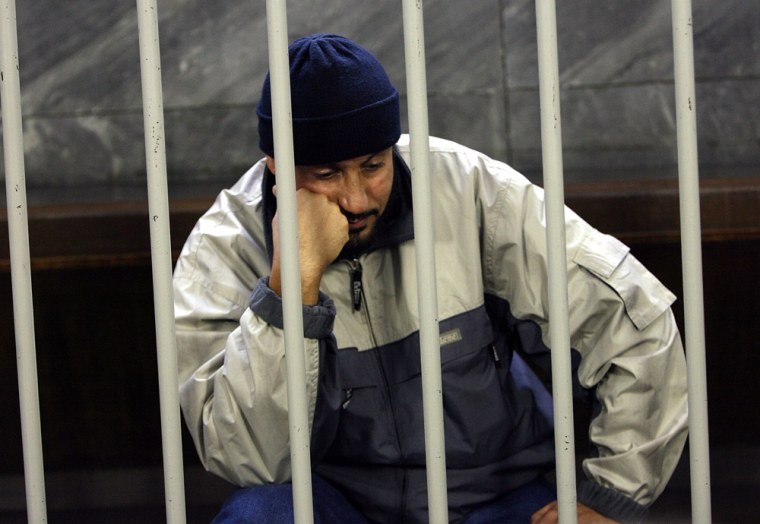An Egyptian man who is one of the chief suspects in the 2004 Madrid train bombings was sentenced to 10 years in jail by an Italian court on Monday.
The court in Milan convicted Rabei Osman Sayed Ahmed, 35, and a co-defendant, Yahia Ragheh, 23, of subversive association aimed at international terrorism, a charge introduced in Italy after the attacks on the World Trade Center and the Pentagon. The younger man was sentenced to five years.
Prosecutor Maurizio Romanelli had sought a 14-year sentence for Ahmed, who was accused of having ties with the terror cell that carried out the March 11, 2004, bombings on the Madrid commuter rail system that killed 191 people and of trying to indoctrinate the younger man with a radical form of Islam after arriving in Italy in December 2003.
Romanelli identified Ragheh as a would-be suicide bomber, and demanded a seven-year sentence.
The trial, which opened in January, included chilling evidence about Ahmed reacting with joy as he showed the younger man a video of the beheading of American Nicholas Berg by his al-Qaida captors in Iraq.
“Come nearer, watch closely, this is the politics you have to follow, the politics of the sword,” Ahmed said.
Ahmed faces charges of conspiracy to commit murder in Spain early next year, where he is to be tried with 28 other suspects in the Madrid bombings. He already has been questioned by Spanish investigators in Milan.
Lawyers for both men said they will appeal the sentences and contended the court was influenced by the upcoming trial in Madrid. Ahmed was expected to remain in Italian custody until the start of the Madrid trial.
“There was no proof of terrorist association in Milan. There was none, and there is none,” Ahmed’s defense lawyer, Luca D’Auria, said. “We are here because of the Madrid massacre, not because of the wiretappings of the conversations between Rabei and Yahia.”
Breaking silence
Ahmed, who has been in Italian custody since June 2004, broke his silence in court on Monday to deny the prosecution’s allegations that he was a member of Islamic Jihad, a radical Islamic group in Egypt that took part in the assassination of Egyptian President Anwar Sadat in 1981.
Ahmed said that if the accusations were true, Egyptian authorities would not have granted him a new passport when he made the request at a consulate in Spain in 2001.
“The prosecutor said I am a member of the Islamic Jihad. If this was true they would never have allowed me to depart from Alexandria airport,” Ahmed said, speaking to the court through a translator.
An Italian police report submitted as evidence said Ahmed belonged to the group, and that he had been jailed previously in Egypt for reasons unknown to the Italians. They also claimed Ahmed was an explosives expert in the Egyptian army, although his lawyer denied that, saying his only military experience was as a clerk.
Presiding Judge Luigi Domenico Cerqua denied that the court considered evidence from the Madrid case in determining the sentence. The court’s reasoning will be released in 90 days, as is procedure in Italian courts.
Tip from Spanish authorities
Spanish authorities had tipped Italian investigators off to Ahmed’s presence in Italy after the Madrid attacks, Romanelli said during his closing arguments. Authorities subsequently bugged the apartment where Ahmed was living with Ragheh, as well as his telephone.
Italian prosecutors said they overheard Ahmed claiming involvement in the Madrid attacks, telling his co-defendant, “I’m the thread to Madrid, it’s my work.”
The subversive association charge, which was used to fight homegrown terrorism during the 1970s and 1980s, was toughened following the Sept. 11 terrorist attacks to include association abroad. It carries a maximum sentence of 15 years.
